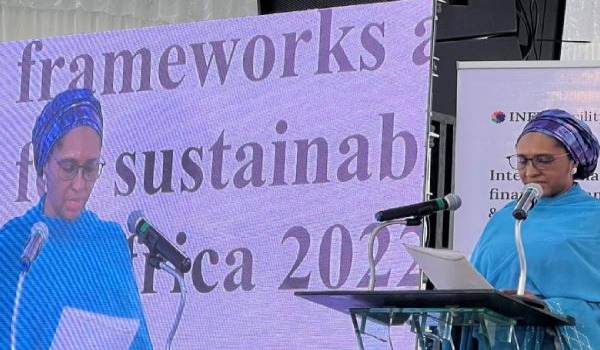FG assures of subsidy removal in 2023 budget breakdown
The heavy borrowings to fund the country’s budget will be reduced considerably this year with the removal of fuel subsidy payments by June.
Finance Minister Zainab Ahmed made this known at the public presentation and breakdown of the 2023 budget.
The Minister is also positive that the budget’s early passage will boost the effective implementation of projects and aid the incoming administration’s take-off.
It’s the day after the president gave his assent to the 2023 budget.
A breakdown is now being presented to the public. Recurrent non-debt spending is estimated at N8.33tn, and this includes N200 billion for the social investment programme.
Capital Expenditure of N6.46tn, which is 30% of total expenditure is 3.5% lower than that of the preceding year.
Debt service of N6.31tn is 29% of total expenditure, which is 71% higher than 2022’s figures including interest payment of N1.2 trillion for Ways & Means, which is the Federal government’s borrowing from the apex bank.
Revenue totalling N10.49 trillion is available to fund the budget.
The budget has a deficit of N11.34tn, representing 5.03% of GDP. The deficit is to be financed majorly through loans.
22% of projected revenues is expected from oil-related sources, while 78% is from non-oil sources.
The fiscal authorities say oil revenue projections for the 2023 budget are feasible.
The payment of fuel subsidy is expected to end by the end of June this year
Highlights of the presentation show 1.88b were released as capital vote in the 2002 budget, while 12.87 trillion was the total actual spend.
Defence gets 2.98 trillion of the 2023 budget spending, education 1.79 trillion and infrastructure 1.24 trillion.




